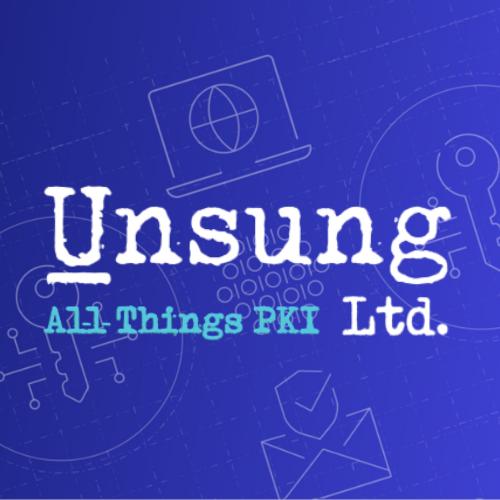CLM for Multi-Vendor Transport Supply Chains: Securing Third-Party Access and Device Trust
Modern transport systems depend on multiple suppliers, contractors, and technology partners to deliver essential services. From signalling infrastructure to airside operations, smart motorways to integrated ticketing platforms, these complex ecosystems require secure digital trust across organisational boundaries.
Certificate Lifecycle Management (CLM) provides the governance framework transport operators need to maintain security, operational continuity, and regulatory compliance across their entire supply chain.
Managing Digital Certificates Across Transport Supply Chains
Transport organisations face unique challenges when managing digital certificates across multi-vendor environments:
Fragmented visibility across supplier networks. Digital certificates issued by contractors, maintenance providers, and technology vendors often sit outside central oversight, creating blind spots in your security posture.
Complex offboarding requirements. When supplier relationships end or personnel change, revoking access across distributed systems becomes operationally demanding without proper certificate lifecycle management.
Inconsistent cryptographic standards. Different vendors may implement varying approaches to certificate authorities, key management, and cryptographic keys, undermining your unified security measures.
Legacy system integration. Operational technology environments often contain embedded certificates in proprietary platforms where certificate discovery and renewal processes prove difficult.
These challenges directly impact service availability, safety systems, and your ability to maintain compliance with industry regulations.
PKI and Certificate Lifecycle Management in Transport Operations
Public key infrastructure (PKI) and certificate lifecycle management CLM enable secure communication and identity security across:
- Rail signalling and infrastructure – authenticating maintenance access to safety-critical systems through machine identity
- Airport operations – controlling contractor and supplier secure access to airside systems and ground handling platforms
- Highway management – securing roadside technology and smart motorway infrastructure managed by engineering partners through encrypted communication
- Integrated mobility services – enabling digital trust between MaaS platforms, payment providers, and transport operators via digital signatures
- Data sharing environments – protecting sensitive data exchange for passenger analytics and operational coordination
As digital transformation accelerates across transport networks, effective certificate management becomes fundamental to maintaining secure authentication and preventing data breaches.
Certificate Issuance and Discovery Across Vendor Networks
Unsung's certificate discovery services identify certificates across your internal estates and supplier integrations. We locate certificates issued by multiple certificate authorities, establish visibility into your cryptographic assets, and highlight security risks from expired certificates or weak cryptographic keys in hybrid and cloud environments.
Our approach addresses the challenge of managing digital certificates when IT teams lack complete oversight of certificates deployed across mobile devices, operational technology, and cloud environments used by contractors and suppliers.
PKI Management and Digital Certificate Management Architecture
Unsung designs public key infrastructure (PKI) and certificate lifecycle management architectures suited to transport operational requirements. Our PKI management approach supports distributed operations, machine identity at scale, and integration with existing infrastructure including Active Directory and identity security platforms.
We establish certificate life cycle management processes covering certificate issuance, renewal processes, and automated certificate provisioning. This reduces administrative burden on security teams whilst strengthening your overall security posture against security breach risks and credential theft.
Key Management and Policy Enforcement
Effective key management requires clear governance across multi-vendor operations. Unsung develops trust policies and policy enforcement frameworks for multi-party assurance, defining standards for certificate authorities, implementing role-based access controls, and creating processes for managing digital certificates throughout their entire lifecycle.
Our governance frameworks address secrets management, certificate signing request procedures, and cryptographic key protection to prevent service disruptions caused by expired certificates or impending certificate expirations.
Certificate Health Monitoring and Automated Alerts
Continuous monitoring of certificate health is essential across complex supplier networks. Unsung implements automated tools that provide continuous monitoring, generate automated alerts for impending certificate expirations, and reduce human error in certificate lifecycle management CLM processes.
These systems integrate with network security solutions and your broader security measures, ensuring certificates remain correctly configured and up to date across all supplier touchpoints.
Digital Certificate Management for Hybrid and Cloud Environments
Modern transport operations span on-premise systems, hybrid and cloud environments, and supplier-managed platforms. Unsung's certificate management approach addresses this complexity, providing certificate discovery and lifecycle management across diverse infrastructure.
We support certificate lifecycle management in cloud environments, operational technology networks, and legacy systems, ensuring consistent digital certificate management regardless of where certificates are deployed or which certificate authorities issued them.
Post-Quantum Cryptography and Future Digital Trust
Quantum threats represent a long-term challenge to current cryptographic standards. Unsung provides crypto-agility planning and post-quantum cryptography readiness assessment, helping transport operators prepare for transitions in digital signatures, code signing, and key management practices.
Our strategic guidance ensures your public key infrastructure (PKI) and certificate lifecycle management remains resilient as cryptographic standards evolve to address quantum threats.
Benefits of Certificate Lifecycle Management CLM
Structured certificate lifecycle management delivers measurable operational and security advantages:
Reduced service disruptions. Prevent outages caused by expired certificates or certificates outside central management, protecting revenue-generating services and safety systems from security risks.
Faster supplier onboarding. Streamlined certificate issuance and automated tools enable rapid, secure integration of new contractors and technology partners whilst maintaining compliance.
Stronger compliance posture. Comprehensive audit trails support regulatory requirements and cyber assurance frameworks across the transport sector, demonstrating effective digital certificate management.
Enhanced incident response. Rapid certificate revocation capabilities improve your ability to respond to security breaches, credential theft, or compromised supplier systems, protecting sensitive data.
Supply chain resilience. Robust identity security across your vendor network reduces exposure to supply chain-targeted cyber threats and data breaches in today's digital-first world.
Improved operational efficiency. Automated renewal processes and continuous monitoring reduce manual effort whilst improving certificate health across your estate and supplier integrations.
Recommended Certificate Management Practices
To strengthen certificate lifecycle management across supply chains:
Establish governance frameworks defining certificate ownership responsibilities across internal IT teams, security teams, and external suppliers for all digital certificates.
Include cryptographic requirements in contracts specifying certificate lifecycle management CLM standards, approved certificate authorities, and key management practices for all technology and service suppliers.
Implement automated lifecycle processes replacing manual tracking with secrets management platforms and automated renewal processes to maintain compliance and reduce administrative burden.
Conduct regular certificate discovery identifying certificates issued outside policy, assessing cryptographic assets, and verifying correctly configured systems across hybrid and cloud environments.
Integrate with broader security architecture connecting certificate management with network security solutions, secure authentication systems, and your overall security posture to support digital transformation.
PKI Services and Certificate Lifecycle Management from Unsung
As a UK-based PKI specialist consultancy, Unsung brings vendor-neutral expertise specifically relevant to multi-vendor transport operations:
- Over 20 dedicated PKI experts with experience in public key infrastructure across government and enterprise sectors
- Proven delivery of PKI services in complex, safety-critical operational environments
- Deep understanding of transport sector regulatory and assurance requirements for managing digital certificates
- Expertise spanning code signing, digital signatures, machine identity, mobile devices, web traffic protection, and operational technology
- Strategic guidance on maintaining digital trust through technical and organisational change, including post-quantum cryptography readiness
Our consultative approach to certificate lifecycle management ensures your implementation serves operational efficiency goals whilst strengthening digital security across your entire supply chain in the digital world.
Transport services in today's digital-first world depend on secure digital interactions across extensive partner networks. Certificate lifecycle management provides the foundation for trusted supplier integration, enabling you to onboard partners confidently through robust certificate issuance, maintain operational continuity via effective key management, and revoke access decisively when circumstances change.
Unsung helps transport organisations establish the certificate governance, PKI services, and certificate lifecycle management CLM capabilities required to operate securely across complex, multi-vendor ecosystems. Our approach delivers both immediate security improvements and long-term digital trust as your digital transformation continues.


